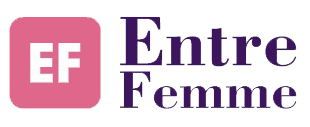Boost Your Earning Power: Online Learning Platforms for High-Demand Skills
Feeling stuck in a career rut? Dreaming of a job that not only challenges you but boosts your bank account? The key to unlocking your earning potential might be closer than you think! In today's ever-evolving job market, acquiring high-demand skills is the ultimate power move. But where do you even begin?
- Entrefemme
- May 14, 2025
- 0 Comments
- 2528 Views
As a software engineering student, I have often encountered complex concepts in my courses. To better understand them and validate my modules, I have explored various online learning platforms. Some are paid, while others offer free courses. This article is your roadmap to success! We'll unveil the top online learning platforms that offer a treasure trove of valuable skills, empowering you to transform your resume and watch your earning power soar. Get ready to ditch the career blues and embrace a future filled with opportunity and financial freedom!
- LinkedIn Learning: Monthly subscription starting from $29.99 USD.
- Coursera: Individual courses are often free, but some specialized courses or certificates can cost between $29 USD and $99 USD per month.
- Udemy: Course prices generally range from $9.99 USD to $199.99 USD, depending on the content and duration.
- Skillshare: Annual subscription starting from $8.25 USD per month.
- Khan Academy: Free.
- Udacity: Nanodegree program prices generally range from $399 USD to $2,400 USD.
- Pluralsight: Annual subscription starting from $29 USD per month.
- Codecademy: Pro subscription starting from $19.99 USD per month.
- Treehouse: Basic subscription starting from $19 USD per month.
- Lynda.com (now LinkedIn Learning): Monthly subscription starting from $29.99 USD.
- Google Digital Workshop: Free
- FUN MOOC: Free to low cost (some courses may have registration fees)
- Openclassrooms: Monthly subscription starting from €20 per month for unlimited access to all courses
- edX: Free (for course access) with fees to obtain a verified certificate, prices vary by course
These prices are indicative and may vary depending on ongoing promotions and geographical regions. It is recommended to check individual websites for the most up-to-date pricing.
Apart from learning platforms, you can also gain experience by having experiences on the web and for that here's a link I highly recommend to learn more and see more.
Explanation of the Certificate Acquisition Process and Means to Apply for Jobs After Career Change
1. Certificate Acquisition Process:
- On platforms like Coursera, LinkedIn Learning, Udemy, Udacity, and others, you can take specific courses covering the skills you need for your new career.
- Once you complete a course or series of courses, you can obtain a certificate of completion or proficiency, depending on the platform. These certificates attest to your skills in a particular field.
- Some courses may also offer the opportunity to take an official industry-recognized certification exam to validate your skills.
2. Means to Apply for Jobs After Career Change:
- Highlight your new certification on your resume and LinkedIn profile. Ensure to emphasize relevant skills for the position you are targeting.
- Consider creating an online portfolio to showcase projects you have completed during your training. This can be particularly useful for creative, IT, or tech-related fields.
- Look for volunteer, internship, or freelance project opportunities in your new field of interest. This will allow you to gain hands-on experience and build your professional network.
- Use online job sites to search for job openings in your new field. Make sure to tailor your resume and cover letter for each position to highlight your new skills and motivation to succeed in this field.
- Attend professional networking events, job fairs, and conferences in your area of interest. This will allow you to meet industry professionals and get yourself known in your new sector.
Additional Tips for Boosting Success in Your New Career:
- Build Your Professional Network: Reach out to former colleagues, classmates, mentors, or friends working in your area of interest. Networking can open doors and provide opportunities for professional growth.
- Stay Curious and Keep Learning: Career change is often an ongoing process. Stay open to new ideas, market trends, and technological advancements. Continue taking courses, reading books, and attending continuing education events to stay current in your field.
- Be Flexible and Adaptable: Transitioning to a new career may involve unforeseen challenges. Be prepared to adjust your goals, learn from mistakes, and seize opportunities as they arise. Flexibility and adaptability are valuable qualities in a constantly changing professional world.
- Work on Your Personal Brand: Develop a professional online presence by updating your LinkedIn profile, publishing articles or relevant content in your area of expertise, and engaging in professional discussions on social media. A strong personal brand can help you stand out to recruiters and potential employers.
- Find a Mentor or Career Coach: Finding someone who has already walked the path you want to take can be extremely valuable. A mentor or career coach can provide guidance, encouragement, and valuable insights to help you achieve your career goals.
- Cultivate Resilience and Perseverance: Career change can be emotionally and mentally demanding. Cultivate resilience by developing stress management strategies, practicing mindfulness, and finding a balance between work and personal life. Keep in mind that every challenge overcome brings you one step closer to your goals.

 | Unlock Success with Our Guide
| Unlock Success with Our Guide



0 Comments